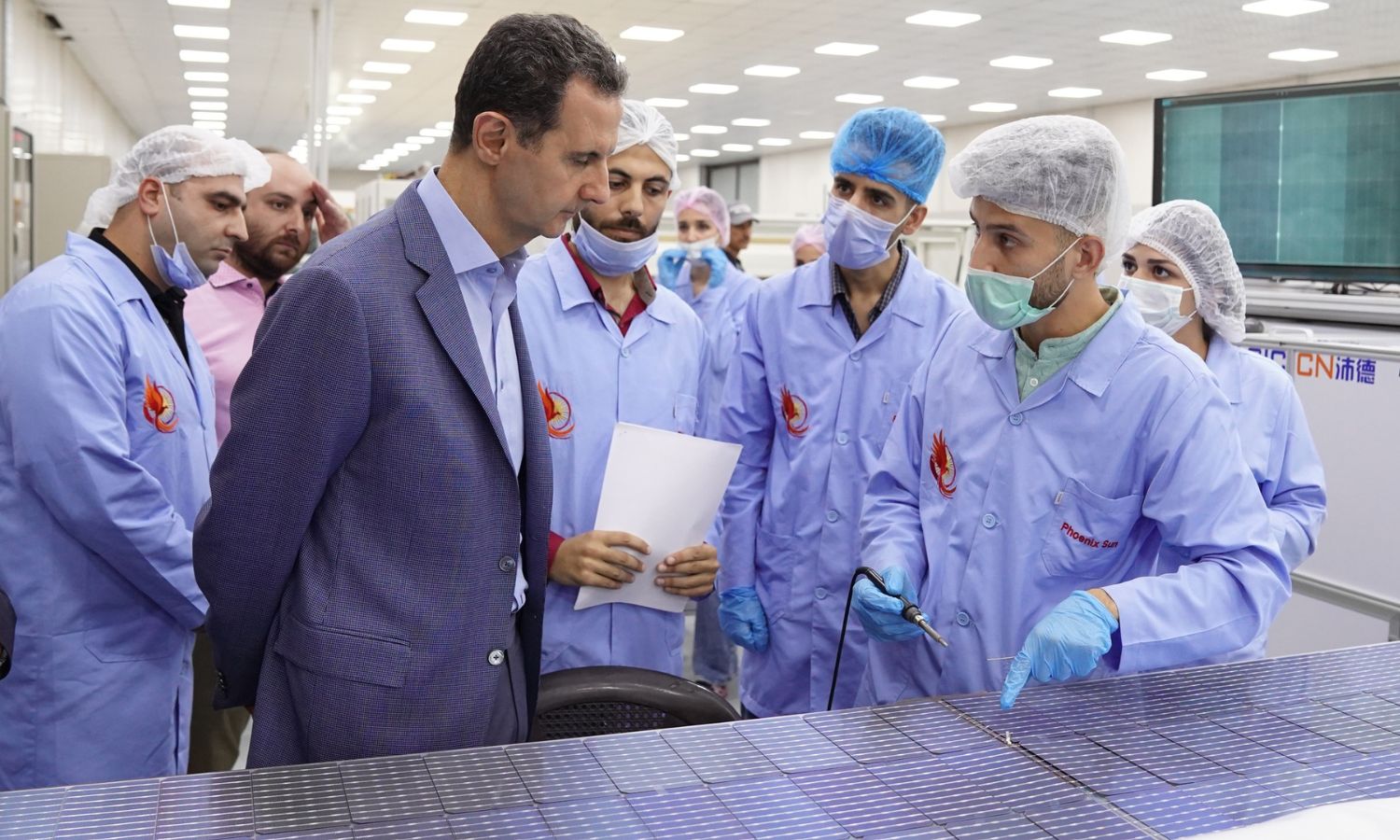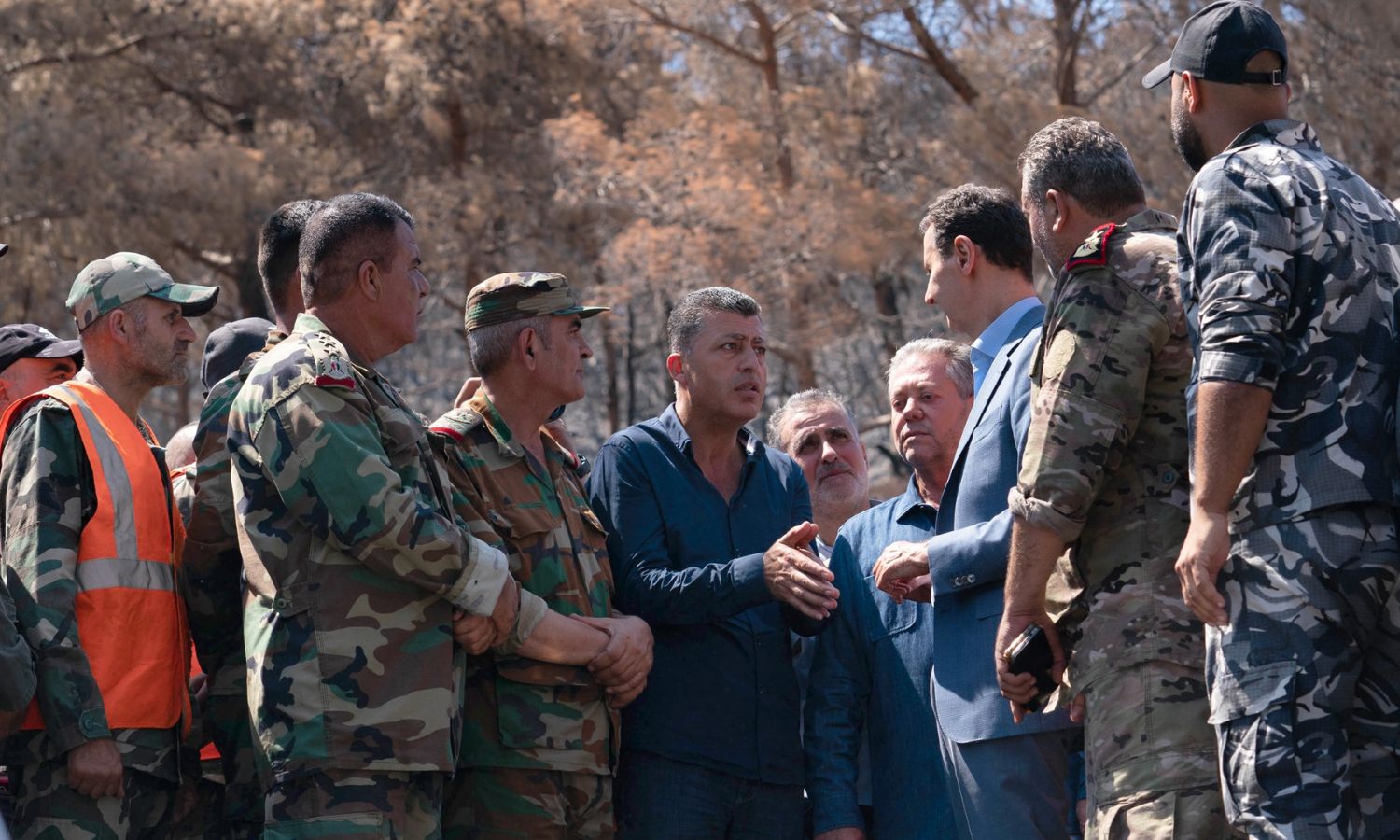



Enab Baladi – Yamen Moghrabi
The military operations that Syria witnessed over more than a decade changed the shape of its economy, transforming it from an economy based on agriculture, services, and some industries to a war economy, accompanied by a major crisis that the country is experiencing as a result of the continuation of the war and the absence of any horizon for a political solution and the absence of any kind of stability necessary to attract local and foreign investments.
Despite the ability of the Syrian coastal cities to contribute to the local and national products through agricultural products on the one hand and being considered Syria’s maritime gateway to Africa and Europe on the other hand, the cities of Damascus and Aleppo were known as the commercial and industrial backbone of the Syrian economy, while the coastal, Jazira, and southern Syria regions were known for cultivating strategic products, such as wheat, cotton, citrus fruits, vegetables, and tobacco.
The economic crisis in Syria prompted the residents of southern As-Suwayda governorate to demonstrate and demand the overthrow of the Syrian regime last August, coinciding with similar calls in the Syrian coastal regions, which include what is known as the “popular incubator” of the regime.
As much as the regime tightened its security grip at the time to prevent demonstrations, it tried to give the region governmental momentum through visits by the head of the Syrian regime, Bashar al-Assad, his wife Asma al-Assad, and other government officials, which indicates al-Assad’s attempts to please the so-called “popular incubator” by supporting it economically, even at the expense of other strategic products in Syria.
The Russian Novosti agency quoted the Minister of Agriculture and Agrarian Reform in the Syrian regime’s government, Mohammad Hassan Qatna, as saying that his government had concluded a contract with Russia to purchase approximately 1.4 million tons of wheat for the benefit of the Syrian Grain Corporation.
According to a file prepared by Enab Baladi last June, the decrease in government support during the stage of planting and harvesting wheat in the areas controlled by the regime, in addition to setting a price that is not commensurate with the costs, which forces farmers every year to sell their crops outside the areas of control, where the selling price is higher.
This creates a parallel market for the material, in addition to the reluctance of some farmers to grow wheat in the coming seasons and their orientation towards other crops and cultivations with better returns.
In return for the regime’s lack of interest in the strategic crop in terms of subsidies during the stages of planting, harvesting, and then selling, the government attaches importance to importing the material from the Russian ally through several methods to make up for the shortage every year.
In 2020, Ibrahim Maida, director of the authority for support and development of local production and exports, confirmed the installation of a sea line to transport citrus fruits between ports in Syria, Russia, and the Crimean Peninsula, with a monthly load of 4,500 tons.
In October 2022, the Syrian Ministry of Economy and Foreign Trade issued a decision to support the export of citrus for the 2022-2023 season through several financial grants to exporters at a rate of 25% of the costs of land and air freight for shipments exported between the dates of November 1 and February 28, 2023.
It was also decided to grant a 10% subsidy on land and air freight costs for shipments exported between March 1 and May 30, 2023.
Ayman Dasuki, a research fellow at the Omran Center for Strategic Studies, covers political economy and local administration, told Enab Baladi that there may be preferential treatment by the Syrian regime with regard to the basic needs of farmers.
This can be explained by the activity of its official and informal networks in the region and their ability to convey farmers’ demands, and the regime’s also possession of informal tools that allow it to contain these demands in one way or another, which suggests that it favors the products of the Syrian coast at the expense of other governorates, Dasuki added.
As much as the Syrian regime shows interest in agricultural products in the coastal regions, it ignores strategic crops that are equally and perhaps more important, such as wheat, barley, and grains, which constitute the basis of food and food security in Syria.

Bashar al-Assad’s visit to the fire areas in the coastal Latakia governorate, August 3, 2023 (Facebook/Syrian Presidency)
The northern city of Aleppo was subjected to widespread destruction as a result of the military operations carried out by the regime against opposition military factions. These operations led to the departure of local capital from the city, whether to other countries such as Egypt, Jordan, Iraq, and Turkey or to other Syrian cities that witnessed less unrest due to several factors.
On the other hand, a new class of businessmen has emerged in Syria, some of whom formed an economic front for the Syrian regime through projects in various sectors.
A number of these figures’ projects were concentrated in the coastal areas, given that these areas witnessed less unrest.
There are no precise studies of government or private investment projects in the Syrian coastal areas, but the interest declared by government media affiliated with the regime shows the latter’s attempts to depict some interest in its incubator areas and an attempt to reposition the Syrian economy and move it from its known historical centers in Damascus and Aleppo to other areas.
Economist Dr. Firas Shaabo told Enab Baladi that the Syrian regime is working to reposition the Syrian economy to its advantage, whether at the individual level or at the geographical level within the areas under its control.
The regime supports the areas loyal to it, by transferring commercial and industrial traffic to them and providing facilities and support to some figures affiliated with it. These moves represent a kind of protection for the investments of the Syrian regime and its men, according to Shaabo.
A study issued by the Omran Center for Strategic Studies in 2019 stated that the Syrian regime politicized decisions on the distribution of basic services in favor of regional and sectarian accounts, as well as the distribution of government subsidy and support, and Latakia ranked first among the Syrian governorates in this area, while Tartus ranked second among the governorates in terms of investment projects following As-Suwayda governorate.
The study also indicated the regime’s focus on its areas of influence in rehabilitating infrastructure and government employment.
Dasuki told Enab Baladi that the deteriorating security conditions in the cities of Damascus and Aleppo prompted industrialists to temporarily move their factories to the Syrian coast, as it is safer and close to seaports, and thus there is ease in importing raw materials and exporting abroad.
Omran’s research fellow added that some warlords from the coastal region worked to invest their capital generated from the war economy in the field of industry, especially the food and pharmaceutical industries, but this does not mean that the Syrian coast has turned into an alternative, yet, at the expense of Damascus and Aleppo.
This is due to the fact that the coast does not have large-scale industrial areas, and its people do not possess the required skills, according to Dasuki.
For his part, Shaabo believes that the coast does not have the necessary infrastructure to contribute to the establishment of industries, but the regime is trying to reposition the economy in “useful Syria” for it, which are the areas that are completely loyal to it, and it is trying to benefit from this idea to support its survival.
The Syrian regime’s movements fall within what is known as the wartime economy, which the Syrian regime resorted to in an attempt to balance basic needs and their shortages, especially with the collapse of the value of the Syrian pound against foreign currencies and the country’s entry into a severe economic and living crisis.
This was accompanied by a large migration of Syrians towards other countries, whether to European countries or neighboring countries, to search for opportunities for economic and living stability. This economy was controlled by figures close to the Syrian regime through informal networks.
Dasuki says that this type of economy depends on drug smuggling and trade, which allows the regime to mobilize many people from the coast within this economy, which ensures two things: securing job opportunities and linking their fate to the Syrian regime.
In addition to these networks, the Syrian regime awarded long-term investment contracts to its allies, Russia and Iran, in the ports of Latakia and Tartus. Such moves raised the question of whether the cities of the Syrian coast have the ability to contribute to the Syrian gross domestic product.
According to the economic researcher, the coastal cities have their contribution to the economy, which may have increased in recent years by virtue of being less affected than others and attracting local and foreign investments from allies.
But increasing its contribution to the gross domestic product depends on its ability to restore formal economic integration with the rest of the Syrian governorates, Dasuki concludes.
if you think the article contain wrong information or you have additional details Send Correction